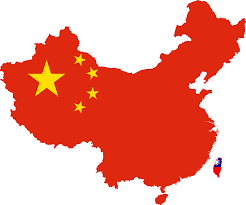China’s Politburo has endorsed the Communist Party’s long-term economic strategy, emphasising increased consumer spending and the elimination of unproductive companies to foster a “survival of the fittest” environment. Following a meeting with the party’s top 24 leaders, a statement indicated tough months ahead, likely due to global uncertainties, especially with the upcoming U.S. presidential election in November.
The party’s plans to enhance China’s fiscal policies amid rising local government debt lacked innovation. Instead, they focus on accelerating the implementation of policies like encouraging families to replace old cars and appliances and redecorate their homes, with incentives and subsidies promoting efficiency and reduced fossil fuel use.
China’s economy grew at a 4.7% annual rate in the last quarter, following a 5.3% expansion in the year’s first three months. However, some economists argue that the official data overstate growth, masking long-term weaknesses that need comprehensive reforms to reduce dependence on construction and export manufacturing.
Under Xi Jinping’s leadership, China has prioritised industries using advanced technologies, such as electric vehicles and renewable energy. This strategy has made China a leader in some sectors but has also resulted in oversupplies, affecting manufacturers like solar panel producers.
The Politburo pledged support for fast-growing companies and high-tech start-ups, warning against “vicious competition” and emphasising the need to eliminate “backward and inefficient production capacity” to ensure “survival of the fittest.” The party also aims to address the property sector crisis by encouraging apartment purchases for affordable housing and adapting monetary policy to boost spending and investment.
The statement also stressed the importance of supporting rural areas and farmers to prevent a return to widespread poverty and condemned resistance to new initiatives, highlighting the need to correct “formalism and bureaucracy” and avoid resolving economic disputes through “administrative and criminal means.”
Despite these policies, Chinese markets have shown little enthusiasm. On Tuesday, the Hong Kong Hang Seng index dropped 1.4%, while the Shanghai Composite index fell 0.4%. Over the past three months, the Hang Seng has decreased by 4.3%, and the Shanghai index by 7.3%. The Politburo also promised unspecified measures to restore confidence in financial markets and increase government spending, reflecting priorities set in a broader meeting earlier in July. Following that meeting, China’s central bank lowered key interest rates, and the government doubled subsidies for electric vehicles to replace older cars.
The Politburo’s calls to support low- and middle-income groups align with pledges to strengthen the social safety net, enabling families to spend more rather than save for healthcare, education, and elder care. However, no specific details on how this will be achieved were provided.
China’s Politburo has outlined ambitious goals to reshape the economy, focusing on innovation, efficiency, and social support. Yet, the lack of specific plans and market scepticism pose challenges to the successful implementation of these strategies.
Fidelity China Special Situations PLC (LON:FCSS), the UK’s largest China Investment Trust, capitalises on Fidelity’s extensive, locally-based analyst team to find attractive opportunities in a market too big to ignore.

